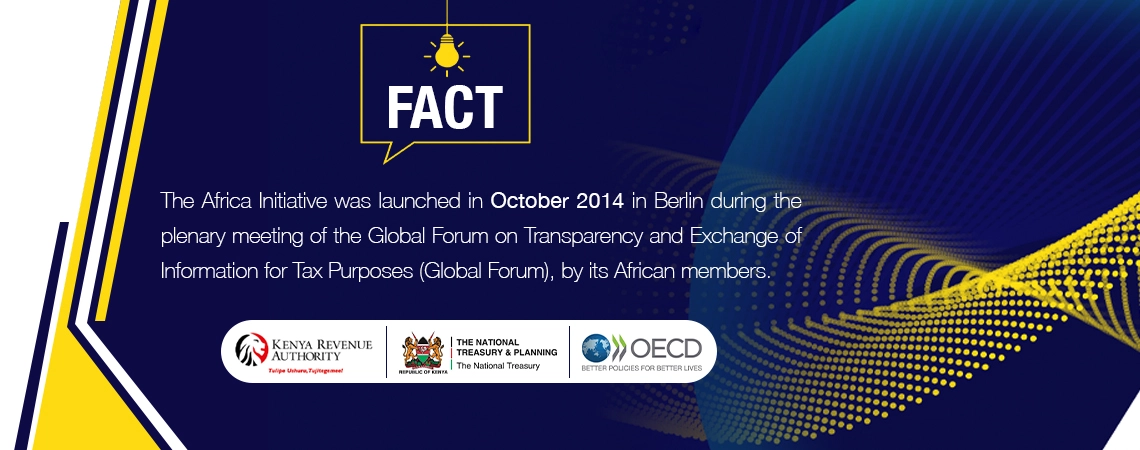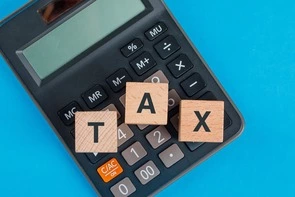
Helping you find
tax information & services
- Details
- Written by Admin 1
- Category: Uncategorised
- Hits: 18706
These are points where goods and people can enter and exit the country, legitimate businesses can be conducted with security provided by the government. At these points of entries and exit, you will meet border agencies such as
- Kenya Revenue Authority (KRA),
- Immigration department,
- Kenya Bureau of Standards (KEBS)
- Kenya Plant Health Inspectorate Service (KEPHIS),
- Port Health,
- Kenya Ports Authority KPA,
- Kenya Airports Authority KAA
- National Police Service NPS
- and Participating Government Agencies
Kenya has thirty-five (35) points of entry and exit, commonly known as BORDERS. Kenya shares borders with five countries, Ethiopia for 867km , Uganda for 933km, Somalia for 684km, Tanzania for 755km, South Sudan 317km and International waters (Indian Ocean) for 536km.
The points of entry and exit are put into three categories; Land borders, Maritime borders and Air borders. Currently Seven land borders have been upgraded to one stop border Posts (OSBPs).
|
Land Borders |
Maritime Borders |
Air Borders |
|
Mandera (closed) Liboi (closed) Kiunga (closed) Lunga-lunga OSBPs Taveta OSBPs Loitokotok Namanga OSBPs Isebania OSBPs Sand river gate (closed) Muhuru-bay Malaba OSBPs Busia OSBPs Lwakhakha Suam Moyale OSBPs Nadapal |
Kilindini Kilifi Shimoni Lamu Kisumu pier Mbita Ngomeni (closed) Vanga Oldport Malindi
|
Jomo Kenyatta International Airport Mombasa International Airport Kisumu International Airport Malindi Airport Eldoret International Airport Wilson Airport Wajir Airport Lokichogio Isiolo airport
|
- Details
- Written by andrew.kidula@kra.go.ke
- Category: Uncategorised
- Hits: 149596
KRA Data Protection Officer
KRA as a data controller is required to have a data protection officer whose role is to oversee and ensure compliance to the Data Protection Act , 2019. The contact details of KRA's data protection officer is as follows:
Mr. Joseph Tonui
Deputy Commissioner - Corporate Data Office
Email: This email address is being protected from spambots. You need JavaScript enabled to view it.
Telephone: 0709017166
1. PRIVACY STATEMENT
This Privacy Statement provides information on how and why the Kenya Revenue Authority (KRA) collects and processes your personal data.
This statement should be read together with the Terms and Conditions of use for other KRA Services. Where there is a conflict, this privacy statement will prevail.
This statement applies to all taxpayers, KRA staff, students, consultants, 3rd parties, parastatals, development partners and all visitors to any of KRA premises.
2. DEFINITIONS
The Authority/KRA/We/our/ours/us/ means the Kenya Revenue Authority established under Act of Parliament Chapter 469 of the laws of Kenya.
Data Protection Officer is a person designated or appointed by the Authority to monitor compliance with the Data Protection Act, No. 24 of 2019 and the Regulations made under the Act.
Data Collection means gathering of information that relates to you.
Personal data means information about you that identifies you directly or indirectly as a unique individual such as name, an identification number, location data, an online identifier or one or more factors specific to the physical, physiological, genetic, mental, economic, cultural or social identity of a natural person.
Processing means any operation or sets of operations which is performed on your personal data whether or not by automated means, such as: collection, recording, organization or structuring; Storage, adaptation or alteration; Retrieval, consultation or use; Disclosure by transmission, dissemination, or otherwise making available; Alignment or combination, restriction, erasure or destruction.
Sensitive personal data is data revealing your racial or ethnic origin, political opinions, professional membership, and the processing of genetic data, biometric data for the purpose of uniquely identifying a natural person, data concerning health or data concerning a natural person's gender.
Third Party - means a natural or legal person, public authority, agency or body other than you and KRA, who under the direct authority of KRA are authorized to process your personal data.
You/ Your (s) means:
- Taxpayer – a person who holds a Personal Identification number (PIN) and liable for tax under the Kenyan tax law whether or not you have accrued any tax liability in a tax period.
- Any staff who has been employed by Kenya Revenue Authority
- Any student who has enrolled with the Kenya School of revenue and administration (KESRA)
- Any agent, dealer and/or merchants who has signed an agreement with us and is recognized as a merchant or agent in accordance with any applicable laws or Regulations.
- Any visitor that is a person (including contractors/subcontractors or any third parties) who gains access to any KRA premises.
- Any supplier/ service provider who has been contracted by KRA.
- Any external lawyer who has tendered his/her application and/or signed a service level agreement with KRA.
- Any Auditor who has signed an agreement with KRA.
3. PROCESSING OF PERSONAL DATA
The Kenya Revenue Authority processes your personal information as permitted by the applicable Tax Laws, Data Protection Law and its internal policies:
- With your consent
- Where processing is necessary for carrying out the mandate of the Authority
- For the performance of a contract to which you are party to or at your request before entering a contract.
- In compliance with any legal obligation to which KRA is subject.
- For protecting the vital and legitimate interests of KRA or another person.
- For the performance of a task carried out in public interest.
- For historical, statistical, or scientific research.
3.1 Collection of Personal Data
KRA collects your personal data both directly and indirectly in accordance with the law. We collect your personal information with your knowledge and consent with exception to cases where prior consent cannot be obtained for real reasons and the processing of the data is permitted by law.
The personal data we collect includes name, email, national identification number/passport number/Alien identification number, date of birth, income, employer, Address, phone number, profession, bank account details, business ownership, property, gender, photographs, videos, tax residence status, citizenship, sources of income, educational qualifications, biometric data, religion, ethnicity, marital status, family details, surveillance footage, or any other data of a personal nature.
KRA also collects information that cannot be used to personally identify you such as anonymous usage data, general demographic information, referring/exit pages and URLs, platform types, preferences that are generated based on the data that you submit and number of clicks.
3.1.1 Sensitive Personal Data
The Authority collects special category of personal data about you revealing details about your race, health status, ethnic origin, belief, biometric data, property details, marital status, family details including details of your children, parents, spouse or spouses, gender and biometric data.
KRA shall ensure that sensitive personal data about you is processed in accordance to your right of privacy and as permitted in Part V of the Data Protection Act, 2019.
3.2 Use of Personal Data
|
Stakeholder |
Personal data collected |
Purpose |
|
Individual taxpayer |
Identity type, name, postal and physical address, location, phone number, date and place of birth, email address, age, marital status, family details, gender, bank account details, income brackets, profession, supporting personal documents, closed circuit television surveillance recordings. |
Tax Registration, Tax Assessment, tax payments and refund processing, responding to queries, implementation of tax laws |
|
KESRA Students |
Identity type, name, postal and physical address, location, phone number, date of birth, email address, age, gender, academic details, bank account details, closed circuit television surveillance recordings. |
Educational administration |
|
Staff |
Identity type, name, postal and physical address, location, phone number, date of birth, email address, age, gender, dependant details, academic details, profession, biometric information such as fingerprints, Closed circuit Television surveillance recordings, health records |
Management of Employment relationship and benefit processing |
|
Staff dependent’s |
Identity type, name, postal and physical address, location, phone number, date of birth, email address, age, gender |
Employee dependant benefit processing |
|
Interns and attachés |
Identity type, name, postal and physical address, location, phone number, date and place of birth, email address, age, gender, account details, family details-next of kin, academic details, profession, closed circuit television surveillance recordings, |
Internship and attachment processing |
|
Clearing agents |
Identity type, name, postal and physical address, location, phone number, date of birth, email address, age, gender, closed circuit television surveillance recordings |
Regulation of licensed agents |
|
Researchers |
Identity type, name, postal and physical address, location, phone number, Name of educational institution, email address, closed circuit television surveillance recordings |
Validation of request |
|
Development partners /representatives |
Name, phone number, email address, closed circuit television surveillance recordings, associated development partner |
Management of relationships with development partners |
|
Individual Internet Users |
Uniform Resource Locator (URLs), name, postal and physical address, location, phone number, email address, age, gender, date of birth, academic information for job applications |
Tax administration |
|
Other individuals e.g., consultants, vendors, bidders etc. |
Identity type, name, postal and physical address, location, phone number, date of birth, email address, age, gender, academic details, profession, closed circuit television surveillance recordings |
Administration of procurement functions and contracts |
3.3 Access to your Personal Data
Access to your personal data is restricted based on need to know and least privilege principle. We take steps to ensure that your personal data is not altered by unauthorized entities or persons. All authorized persons accessing your personal data are bound by a duty confidentiality.
3.4 Transfer of Personal Data
KRA shall transfer personal data with your consent and in a manner that is compatible with the purpose for which it was collected.
We may transfer or disclose the personal data we collect to third parties who provide support to KRA in providing its services. We shall also disclose or process your personal data to a third party when required by law and the request has been authorized by the designated Data Protection Officer.
It is our policy to use only third-party providers that are bound to maintain appropriate levels of security and confidentiality, to process personal information only as instructed by us.
Where necessary KRA may transfer personal data to other countries, stakeholders, partners or entities outside Kenya so long as those countries, stakeholders, partners or entities have equivalent data protection laws.
In the event that KRA undergoes a business transformation, your personal data may be among the assets to be transferred to new platforms or entities and the acquirer of data assets may continue to process the personal data.
3.5 Protection of Personal Data
The Authority ensures that access to electronic and physical repositories containing your personal data is controlled based on reasonable and appropriate administrative, physical, and organizational safeguards.
We implement security measures designed to protect your information from unauthorized access.
Your account is protected by your account password and KRA urges you to take steps to keep your personal information safe by not disclosing your password and by logging out of your account after each use.
By using the Authority’s systems, sites and access services, you acknowledge that you understand and agree to assume these risks. You also accept responsibility not to disclose your PIN and tax information to suspicious individuals or for nonofficial reasons.
3.6 Retention of Personal Data
We will only retain your personal data to fulfil the purposes for which we collect your data and to satisfy any legal requirements to which we are subject. To determine the appropriate retention period, we consider the size, nature and sensitivity of the personal data, the purposes for which we process the data, the need to comply with internal policies and the applicable legal requirements.
Due to the nature of our mandate, we may retain your personal data indefinitely in administration of a tax law or in compliance with any other legal obligation.
You may however request destruction of your personal data before expiry of the retention period as provided in law. Such requests shall be processed in accordance with the Data Protection Act, 2019 and the KRA data protection and Privacy Policy.
4. USE OF COOKIES, EMBEDDED PLUG-INS, WIDGETS & LINKS
The Kenya Revenue Authority website use “cookies” to give you more personal, convenient website visits. This enables us to recognise you during subsequent visits. A cookie is a text file that is placed on your hard disk by a Web page server. Data stored in a cookie is created by the server upon your connection. This data is labelled with an ID unique to you and your computer and can only be read by a web server in the domain that issued the cookie to you.
You can accept or decline cookies. If you choose to decline cookies, you may not be able to fully experience the interactive features of the Kenya Revenue Authority services or web sites you visit.
Within the Kenya Revenue Authority’s Corporate Website, there are embedded applications, plug-ins, widgets or links to non-Kenya Revenue Authority Websites (collectively “sites”). These sites operate independently of the Kenya Revenue Authority and have their own privacy policies. When you visit these sites, you leave our website and no longer will be subject to our privacy and security policies. The Kenya Revenue Authority is not responsible for the privacy or security practices or the content of other sites, and as such does give an endorsement of those sites or their content.
5. AMENDMENT TO THIS STATEMENT
We reserve the right to amend this privacy statement at any time. All amendments to this privacy statement will be posted on KRA’s website. Unless otherwise stated, the current version shall supersede and replace all previous versions of the privacy statements.
6. CONTACT
KRA welcomes your questions or concerns about how it processes your personal data or if you want to exercise any of your rights in relation to your personal data, on 0709 013211 or by writing to us on email: This email address is being protected from spambots. You need JavaScript enabled to view it. .
- Details
- Written by Admin 1
- Category: Uncategorised
- Hits: 9091

The Global Forum on Transparency and Exchange of Information for Tax Purposes was founded in 2000 and restructured in September 2009. It consists of OECD member countries as well as other jurisdictions that have agreed to implement tax related transparency and information exchange
A plenary meeting was held in Berlin in October 2014 where the African members of the Global Forum discussed the high levels of illicit financial flows and the potential of tax transparency and exchange of information to raise resources for development of the African countries.
The Africa initiative was launched as a partnership between Global Forum, its African members and a number of regional and international organizations such as African Tax Administration Forum, World Bank Group, France (Ministry of Europe & Foreign Affairs) just to mention a few.
The partnership was initially to run for a period of 3 years (2015-2017) but it was renewed for a second phase (2018-2020) at the Global Forum plenary meeting held in Yaoundé, Cameroon. A new 3 year mandate and a new governance was agreed upon during the Initiative’s 8th meeting in October 2020 for the period 2021-2023.
The Africa Initiative is currently chaired by Mr Githii Mburu, MGH, CBS Commissioner General, KRA. The Vice-Chair is Mr Edward Kieswetter, Commissioner, South African Revenue Service (SARS).
The initiative currently has 33 members and is open to all African countries. There are 15 partners and donors who support the initiative.
- Details
- Written by Admin 1
- Category: Uncategorised
- Hits: 11364
Do you know your rights and obligations as a Taxpayer?
- Details
- Written by Admin 1
- Category: Uncategorised
- Hits: 8106
Two suspects have been arrested and charged with being in possession of alcoholic drinks affixed with counterfeit excise stamps, being in possession of alcoholic drinks without excise stamps and manufacturing alcoholic drinks without a license at Subukia Township.
KRA officers with the help police arrested the suspects on 14th April, 2022 with during an operation in Subukia Township within Nakuru County while in possession of alcoholic drinks affixed with counterfeit excise stamps and several items and equipment used to manufacture the alcoholic drinks.
The KRA officers also conducted a search at a business premise known as Platinum Resort Bar which is located in Subukia Township and which belongs to Richard Mwangi Githinji where they found several brands of alcoholic drinks not affixed with excise stamps and alcoholic drinks affixed with counterfeit excise stamps and other alcoholic drinks not affixed with excise stamps.
Both accused pleaded not guilty to the offences before Nyahururu law court magistrate Hon Cynthia Mercy Muhoro and were released on a cash bail of KShs. 100,000.
Manufacture of alcoholic drinks without a license, circulation of excisable goods affixed with counterfeit excise stamps and circulation of excisable goods not affixed with excise stamps are rampant offences that deny the Government of Kenya Revenue in form of Excise Duty and Value Added Tax.
Commissioner, Investigations & Enforcement
Page 1 of 8
Latest News and Updates
Important Links

Online Services
KRA Headquaters,Times Tower, Haile Selassie Avenue, Nairobi Kenya
Contact Centre





